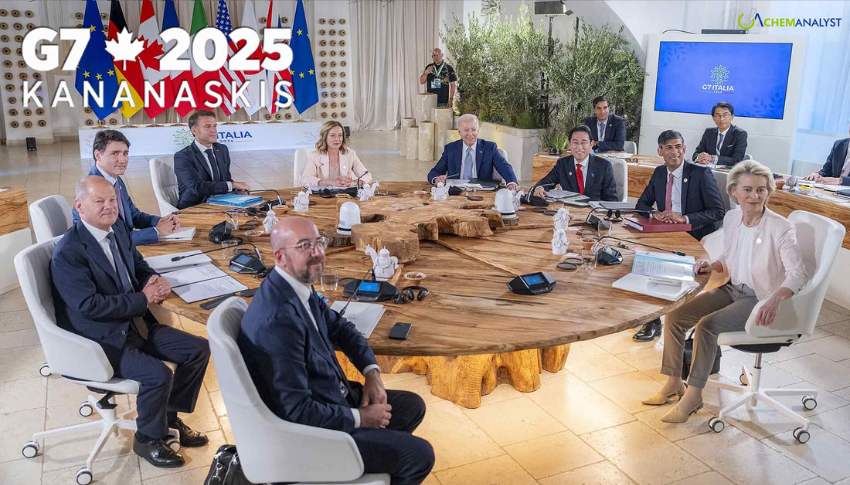Welcome To ChemAnalyst

The G7 nations have agreed on a global minimum tax framework, crucially securing the removal of Section 899 from a US bill which threatened UK businesses with higher taxes.
The Group of Seven (G7) nations have reached a pivotal agreement on the global minimum tax, providing much-needed certainty and stability for UK businesses. This landmark understanding includes the crucial removal of Section 899 from the US's "One Big Beautiful Bill," a provision that could have imposed substantial additional taxes on British enterprises.
Published on June 28, 2025, by HM Treasury and The Rt Hon Rachel Reeves MP, the announcement marks a significant diplomatic achievement, demonstrating the Chancellor and G7's commitment to tackling aggressive tax planning and avoidance while fostering a stable international tax system. For weeks, UK businesses had voiced significant concerns to Chancellor Rachel Reeves regarding Section 899, fearing its potential impact on their operations and investment in the UK.
The agreement primarily focuses on harmonizing the interaction between US and global minimum tax rules, specifically addressing the G20/OECD Inclusive Framework's Pillar 2, which aims to combat multinational tax avoidance through a global minimum effective tax rate. The core objective of Pillar 2 is to ensure that large multinational enterprises pay a minimum tax of 15% on their profits in all countries where they operate.
A key element of the breakthrough is the G7's shared understanding of a "side-by-side" solution. This innovative approach allows the US minimum tax system to operate alongside the Pillar 2 rules, with a commitment to address any substantial risks to the level playing field or potential for base erosion and profit shifting. Critically, this side-by-side system would fully exclude US-parented groups from the Income Inclusion Rule (IIR) and Undertaxed Profits Rule (UTPR) in respect of both their domestic and foreign profits, acknowledging the existing US minimum tax rules.
The removal of Section 899 from the One Big Beautiful Bill, a measure that had been part of a proposed US tax bill, is seen as essential for facilitating further progress in international tax discussions within the Inclusive Framework, which comprises over 140 countries and jurisdictions. This contentious provision, described as a "revenge tax," had threatened to impose progressive tax burdens and expand the Base Erosion and Anti-Abuse Tax (BEAT) on foreign entities and individuals from countries with tax laws deemed "unfair" by the US. Its withdrawal signifies a significant de-escalation and opens the door for more constructive dialogue.
This development follows the Prime Minister's recent launch of the Trade Strategy and recent trade deals with India, the EU, and the US, underscoring the government's broader "Plan for Change" aimed at boosting business confidence and job creation in the UK.
We use cookies to deliver the best possible experience on our website. To learn more, visit our Privacy Policy. By continuing to use this site or by closing this box, you consent to our use of cookies. More info.
